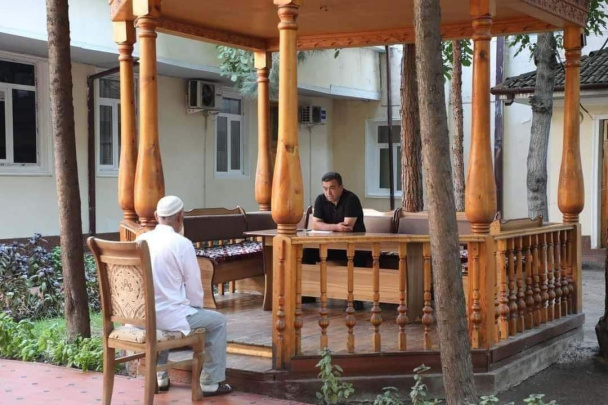Another 21-year-old student sentenced to 3-year imprisonment for sending a religious song to his classmates
In 2022, 21-year-old Jakhongir Ulugmuradov sent a YouTube link of a religious song to his classmates’ Telegram group. According to the conclusion of the Committee on Religious Affairs, the religious song was recognized as “impregnated with the ideas of fanaticism”.

Relatives of the accused told Kun.uz that Jakhongir Ulugmuradov is a second-year student at Tashkent State University of Economics on a grant basis and is the main breadwinner for his family.
In early 2023, Jakhongir was taken away from his home in the Yangiyul district by a prophylactic inspector. After that, a YouTube link of a religious song was found on Jakhongir’s mobile phone, which he sent to the Telegram group of his classmates. According to the expert opinion of the Committee on Religious Affairs, the song was “with fanatical ideas and its distribution in Uzbekistan is prohibited”.
As Kun.uz was informed in the press service of the Supreme Court, on May 8, the Akkurgan district court on criminal proceedings convicted Jakhongir Ulugmuradov Article 244-1 (production, storage, distribution or demonstration of materials containing a threat to public security and public order) of the Criminal Code. Article 57 was applied against the accused, as a result he was sentenced to 3 years in prison.
Jakhongir’s relatives expressed dissatisfaction with the court’s verdict and said they would file an appeal.
Unfortunately, people in Uzbekistan are sometimes detained and tried for disseminating various religious information. However, there is no unified, reliable and publicly available registry of prohibited religious materials. Any Uzbek who does not know Arabic can disseminate information without understanding the content and meaning of this text, song, etc.
Earlier, a similar incident happened to 21-year-old Sardor Rakhmankulov.
In this case, it is important to deal with the primary sources of these materials and form a single list of all prohibited materials. The register must be public, reliable and understandable.
A similar list has been published on the Open Data Portal, but it is important to expand it to include all prohibited materials.
It is also necessary to bring this list to the public so that Uzbeks can know more about religious materials and possible liability.
Related News

14:38 / 11.12.2025
Uzbekistan Airways and Uzbekistan Railways announce discounts for students on domestic routes during winter holidays

16:33 / 15.01.2025
Andijan district's convicted ex-governor becomes Trade Unions chairman

12:02 / 07.12.2024
President Mirziyoyev pardons 483 convicted individuals

21:46 / 23.08.2024



